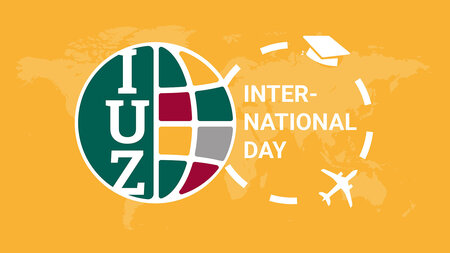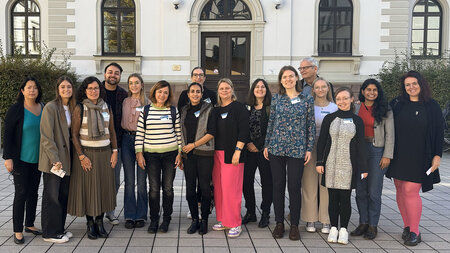News
On this website we inform you about upcoming events and current information related to the Junior Professorship Digital Humanities.
Upcoming events
This lecture is part of the workshop "(Generative) AI for Cultural and Text Data" held from November 4-5, 2024, in Weimar and will be conducted in collaboration with Julian Schröter, Munich. The workshop is organized by the DHd-AG Angewandte Generative KI in den Digitalen Geisteswissenschaften. The working group is dedicated to the research and application of generative artificial intelligence, particularly large language models (LLMs), in the digital humanities.
Persons involved: Rabea Kleymann, Julian Schröter among others.
Past events
The "I, Expert" conference at Chemnitz University of Technology promotes the scientific dialogue on the latest research findings of the partners from Chemnitz and Zaragoza. The participants will report on topics such as recontextualisation in science communication, the discourse of different genres of science communication and their own experiences in science communication. Students and young scientists will also present their research projects and receive valuable feedback. In a workshop, the participants will draw up a list of genres in science communication and characterise these genres. The list will be used to create the best practice collection during the autumn school.
Persons involved: Rabea Kleymann, Marina Ivanova among others.
First International Conference "A Digital Epistemology for the Recycling of Literatures?: Digital Literary Studies under Debate"
Faculty of Philology, Complutense University of Madrid, 26th and 27th of September 2024
Organised by LEETHI Group
Now that we live immersed in the postdigital era without hardly noticing it and that any given cultural object seems susceptible to be recycled by a digital technology available to anyone, it is time to ask ourselves about the underlying conceptual and methodological models that these technologies impose.What kind of cultural recycling (of reading, of literatures, of literary histories) are the so-called Digital Humanities proposing? We observe that the construction of digitised corpora, the essentially quantitative and probabilistic methods, and the capacity of machines to quantify data propose a model of objectivity, a single epistemology that seems to clash with plural hermeneutics.If these methods make it possible to look at the past through new lenses, how can we do so without forgetting the interstices and ambiguities that they leave out? Can phenomena of the past, such as the transcultural or transtemporal interweavings and the mediality of other eras (in contrast to the present one) be helpful to understand more precisely the mediatisation and recycling of literature today? Particularly, those mediations and recycling carried out by Digital Humanities’ methods?It is not a new model, it is an old one: we only have to take a look at its history (its promises can already be found in nineteenth-century positivism) or at the institutionalisation of Digital Humanities as a disciplinary field, which tends to be conservative in its principles and hierarchies. Nevertheless, this model is considered innovative in terms of its creation, modification, and introduction of a socio-cultural use in literary studies. This is indeed why we must question the epistemological bias of this model. In culture, in literatures, biases are observable. We need to critically question the specific characteristics of digital methodologies in the field of literary studies and their underlying conceptualisations and epistemologies, since they can guide future approaches, as well as point to its limitations and blind spots: we need Critical Digital Humanities.
The languages of the conference will be Spanish, English and German. Guest lectures will be translated into Spanish.
More Informations regarding the conferece can be found on the website of the Universidad Complutense de Madrid.
Persons involved: Rabea Kleymann, Anita Traninger, Miriam Llamas, Amelia Sanz among others.
This Lecture will be held in German.
The lecture examines the role and development of theory formation in the digital humanities. Current discussions and controversies on theory formation in the digital humanities will be examined. A particular focus will be on analysing different contexts in which the concept of theory is used, originating from the humanities as well as from computer science, computational linguistics and statistics. Case studies are used to discuss the interplay of different theoretical concepts in specific research settings. How do matrix addition and hermeneutic understanding actually fit together? What epistemic premises go hand in hand with Bayes' theorem? And how do theoretical assumptions materialise in software and code? The lecture not only invites us to think about theory formation in the DH, but also to re-imagine our idea of participatory and collaborative theory work.
Further information can be found on the website of Digital Humanities at the University of Stuttgart.
Persons involved: Rabea Kleymann





